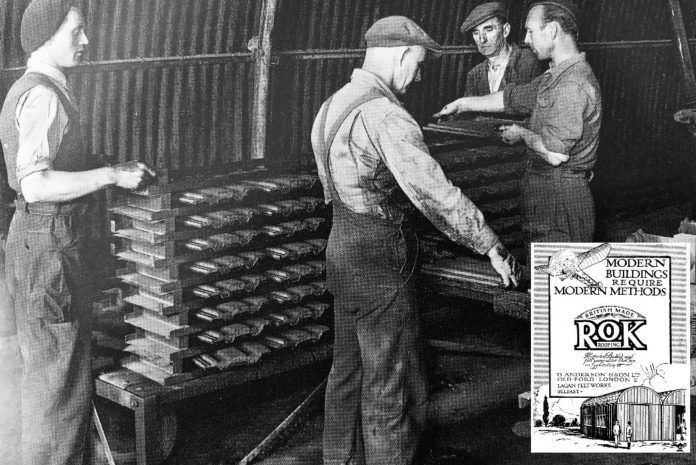This year sees BMI UK & Ireland celebrate – through its iconic BMI Redland brand – 100 years of concrete tile manufacture, making it the oldest concrete tile maker in the UK.
With celebrations due later this year, the company is recalling some of its milestones over the next few months: not just 1919, but from a heritage and pedigree dating back over 180 years.
November 1919 was when the Redhill Tile Company was founded, making its first roof tiles, at the rate of 40 per hour, in a sand pit in Reigate, Surrey. The tiles found popularity in the mass market following the General Strike of 1926, when coal-fired plants producing clay items were inoperative as a result of the widespread industrial action.
Yet the BMI story started much earlier in 1837, the year of Victoria’s coronation, when George Lewis began making Rosemary clay plain tiles in Cheslyn Hay, Staffordshire. The tiles were made from Etruria marl clay and the same Staffordshire clay is still used to make the tiles today BMI’s clay plant in the Midlands. He named the tiles after his daughter Rosemary and, for many, a ‘Rosemary’ or ‘Rosie’ has been the generic term for a clay plain tile today.
Not long after in 1849, and a hop across the Irish sea, Anderson & Sons was founded at Lagan Felt Works in Belfast where they manufactured tarred flax felt. Flax felt is simply composed of jute or flax, which is felted and then saturated in asphalt or bitumen and in a far cry from traditional roofing, the products were used – in the Crimean War– to make huts for the armed forces. Because of its great flexibility and the way it can be flashed around details, it is still used in roofing today, where it is often known as ‘Irish felt’ – no doubt a nod to its Belfast heritage.
In 1876, and slightly further afield in northern Denmark, Jens Villadsen, a master carpenter specialising in the repair of old tarred-felt and zinc roofs, founded Icopal and in 1894, Jens patented Dansk Tagpixtjære, a bitumen-based technology to improve the waterproofing of flat roofs.
Operating in parallel, both Icopal and Anderson became successful flat roofing and waterproofing businesses, with Jens’s patent preceding the invention of the concrete roof tile by the then Redhill Tile Company by 25 years.
As November’s concrete tile centenary approaches BMI, formed in 2017 following the coming together of Icopal and Monier Redland, will be sharing more about its rich heritage, innovation and achievements leading right up to the present day. The company’s experience, traditions, expertise and market-leading brands mean that it is able to see a roof and the sector in terms of how support, service and roofing technologies integrate with the built environment; rather than just through the collection of products that protect a building.




